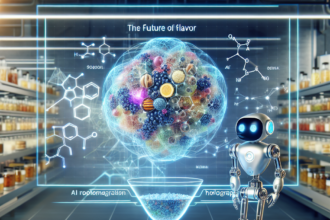Artificial Intelligence (AI) is no longer limited to the realms of science fiction; it is a tangible reality that is reshaping various sectors, with healthcare being one of the most significant beneficiaries. As patient needs evolve in complexity and diversity, AI technologies offer innovative solutions to improve care delivery, enhance operational efficiency, and elevate patient outcomes. This article explores the transformative impact of AI on patient care and how it is revolutionizing healthcare delivery.
Enhanced Diagnostics and Personalization
One of the landmark advantages of AI in healthcare is its ability to improve diagnostic accuracy and speed. Machine learning algorithms can analyze vast amounts of data from medical records, imaging studies, and laboratory tests. For instance, AI-based diagnostic tools can identify patterns in radiological images, allowing for early detection of diseases such as cancer, often before a human eye can detect them. This not only signifies a leap in the accuracy of diagnoses but also ensures timely intervention, which can significantly enhance survival rates.
Moreover, AI facilitates personalized medicine by analyzing individual patient data, genetics, and treatment responses. This leads to tailored treatment plans that consider specific patient characteristics, promoting more effective outcomes. As healthcare becomes increasingly patient-centered, personalized treatment enhances the patient experience and fosters better adherence to treatment protocols.
Streamlining Administrative Tasks
Healthcare delivery is often hampered by cumbersome administrative tasks that divert physician time from patient care. AI technologies streamline these repetitive processes through automation. Tasks such as scheduling appointments, managing billing, and processing patient data can now be automated using AI chatbots and software. This reduction in administrative burden allows healthcare professionals to focus more on what matters most: patient care.
By utilizing AI to manage these operational tasks, healthcare facilities can improve efficiency, reduce costs, and minimize errors, all of which contribute to a more effective healthcare delivery system. The result is an environment where healthcare providers have more time to engage with patients, providing a more substantial and holistic care experience.
Predictive Analytics for Better Outcomes
AI’s potential in predictive analytics is enabling healthcare providers to anticipate patient needs. Machine learning algorithms analyze historical data to predict potential health crises and outcomes. For instance, AI can flag patients at high risk for conditions such as heart disease or diabetes, allowing providers to implement preventive strategies before conditions develop.
This proactive approach to patient care reduces hospital admissions and enhances patient satisfaction. Early interventions not only save costs by avoiding emergency situations but also strengthen the long-term health of patients.
Virtual Health Assistants
The rise of virtual health assistants powered by AI is another transformative aspect of patient care. These AI-driven platforms can provide patients with tailored health information, medication reminders, and answers to common health inquiries. They are available 24/7, ensuring patients have access to support anytime they need it.
Virtual assistants are particularly beneficial in chronic disease management, helping patients monitor their conditions, understand treatment protocols, and keep track of their symptoms. This ongoing engagement between patients and their virtual assistants fosters a sense of empowerment in managing their health.
Improving Accessibility and Reach
AI technologies also play a vital role in expanding healthcare access. Telemedicine, coupled with AI, makes it feasible for patients in rural or underserved areas to receive specialized care. AI algorithms can ensure the quality of consultations, triage patients effectively, and guide remote health practitioners in real-time.
By breaking geographical barriers, AI-driven telemedicine enables comprehensive healthcare delivery, ensuring that quality care is accessible to more patients than ever before.
Conclusion
The revolution of patient care driven by AI is still in its early stages, but the potential is enormous. As healthcare continues to evolve, integrating AI technology promises to enhance diagnostic accuracy, streamline operations, personalize treatments, and improve patient engagement and accessibility. This transformation not only benefits healthcare providers but ultimately leads to better outcomes for patients.
FAQs
1. How is AI used in diagnostics?
AI is employed in diagnostics through algorithms that analyze medical images, lab results, and patient data to identify patterns indicative of disease. This can result in faster, more accurate diagnoses.
2. Will AI replace healthcare professionals?
AI is not intended to replace healthcare professionals but to assist them by automating routine tasks, enhancing diagnostic capabilities, and providing data-driven insights that improve patient care.
3. What are the ethical considerations surrounding AI in healthcare?
Ethical considerations include data privacy, informed consent, and the potential for bias in AI algorithms. Transparency, accountability, and robust regulation are necessary to address these concerns.
4. How can patients benefit from AI-driven health assistants?
Patients can benefit through personalized health information, reminders for medications, and support in managing chronic conditions, leading to better adherence to treatment plans.
5. Is telemedicine powered by AI effective?
Yes, AI enhances telemedicine by improving patient triage, ensuring quality of care, and enabling healthcare providers to deliver efficient services remotely, especially for those in underserved areas.










